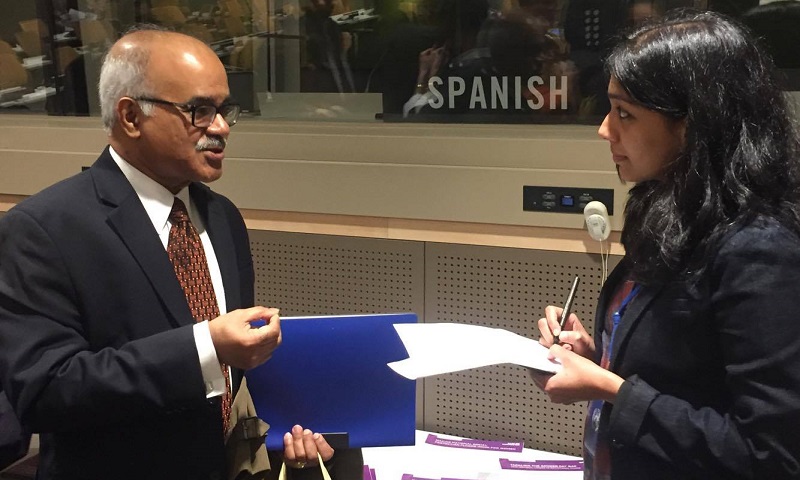
Reducing inequality has the power to result in sustainable development for all; however achieving equality requires integrated social and economic policy frameworks.
The role of reducing inequality to achieve the 2030 Agenda was highlighted by the inclusion of a stand-alone Sustainable Development Goal (SDG) to Reduce Inequality within and among countries - SDG 10. A side event held at UN Headquarters New York provided the opportunity to discuss and share economic and social policy implementation to address inequality, stressing the necessity for the two sectors to work together to achieve SDG 10. The importance of this goal was also recognised earlier this year by the President of United Nations Economic and Social Council, Ambassador Oh Joon with a Special Meeting on Inequality.
A common theme throughout the discussion was the implementation of strategies from the Nordic model. One option for reducing inequality was for states to move towards the implementation of a welfare state. However, it was agreed that reducing inequality could not be addressed by a one-size-fits-all model. Other factors, such as culture, need consideration.
Selim Jahan,Director of Human Development Report Office, UNDP, New York and Sharah Rahzvi Chief, Research and Data Section, UN-Women spoke in depth about the issue of gender inequality and how detrimental it is for social development. Mr Jahan noted that there are still 32 countries where women have to ask permission from their husband to get a passport and 28 countries where they have to get permission to be employed. He explained that such inequality can become inter-generational and therefore difficult to address.
Ms Rahzvi expanded on the topic of gender inequality and discussed the issue of unpaid work and the unequal distribution of care work for women. She suggested initiatives to encourage paid care work and cited the success of the Republic of Korea program of paid care to ensure women can access the work force and maintain financial independence.
Bjorn Gillsater, Manager and Deputy Head, New York Office, World Bank Group, used Brazil as an example of achieving results in addressing inequality. He explained that methods adopted included universal access to education and health care.
Cristina Diez representing ATD Fourth World spoke of the role of dignity and social connections in achieving equality. She explained that this can be fostered through social networks and connectedness. However, people experiencing inequality usually do not have such connections and the responsibility lies on the international community to assist them.
It is apparent that universal access to services, especially health services and education, are key to reducing inequalities and that inequality should not just be defined by the pay gap. Inequality is still a major issue experienced between and within countries. Yet, with the sharing of ideas and by learning from successful and even failed initiatives, it is possible to reduce inequalities.
To learn more about our work on social inclusion visit social.un.org/socialperspectiveondevelopment
Copyright & source UNDESA DSPD
 Welcome to the United Nations
Welcome to the United Nations